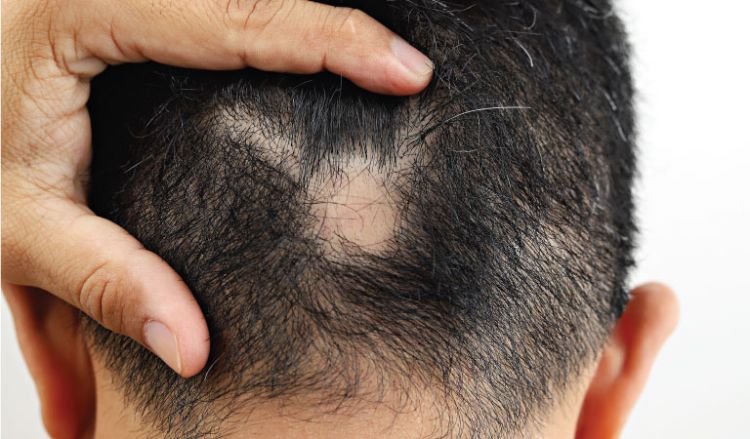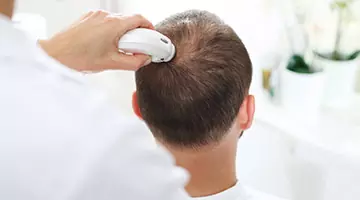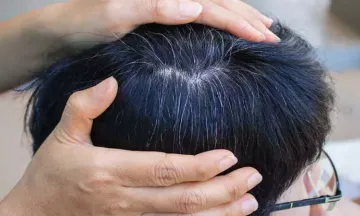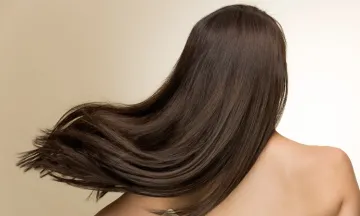HOW TO LIVE WITH ALOPECIA AREATA
Our hair is closely associated with our self-image as well as with others’ perceptions of our appearance. Therefore, hair loss can be a difficult condition to deal with. Some people experience hair loss in the form of bald spots or patches on the scalp or other areas of the body. This type of hair loss is triggered by an autoimmune disorder known as alopecia areata. In some cases, it can lead to the complete loss of hair on the scalp (alopecia totalis) or, in severe cases, the entire body (alopecia Universalis). According to the National Alopecia Areata Foundation, about 147 million people over the world are affected by alopecia areata.
What Causes Alopecia Areata?
The condition occurs when the immune system mistakenly attacks the healthy cells in the hair follicles, causing them to shrink and dramatically slow down hair growth. If we talk about the causes of alopecia areata, some scientists believe genetics is a triggering factor. People who have a family history of alopecia areata or autoimmune conditions, such as allergies, thyroid disorders, vitiligo, and amongst others are more at risk. In some cases, extreme stress could also trigger alopecia areata.
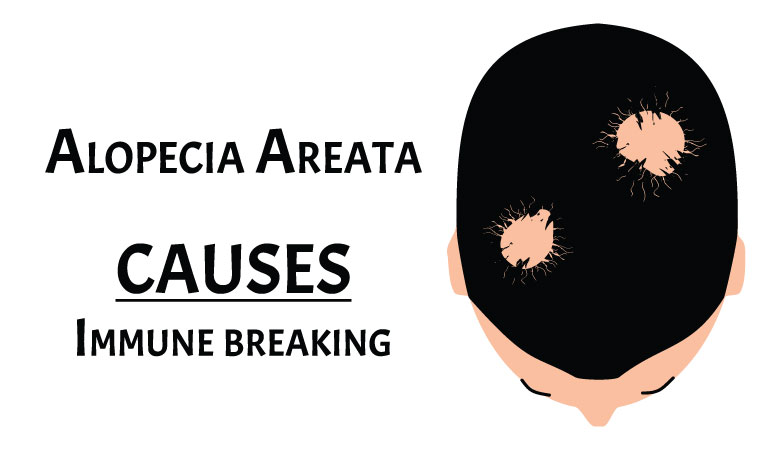
Let’s look at some of the symptoms of this condition.
Symptoms Of Alopecia Areata
The most easily identifiable symptom of alopecia areata is patchy hair loss on the scalp. These patches are often several centimeters or less in size. Hair loss might also be experienced in the eyebrows, eyelashes, and beard, as well as on other areas of the body. However, the extent of hair loss varies from person to person.
Read more on the symptoms of alopecia areata here: https://www.drbatras.com/hair-conditions/alopecia-areata/symptoms
Living With Alopecia Areata
As we have seen, hair forms a very important part of our appearance. Hence, having a condition like alopecia areata can be disheartening. While the condition isn't physically painful, it can have a serious impact on the confidence and the self-image of a person. People suffering from the condition may often face social isolation or self-isolation, which can push them towards anxiety and depression. Some people might also resort to smoking, substance abuse, or other harmful ways to cope with the condition. Although living with alopecia areata is challenging, there are some healthy ways to cope with it.
- Learn more about it – There are many myths about alopecia areata prevalent in our society. Learning more about the condition from legitimate sources can help you understand your symptoms better and also to get the right alopecia areata treatment. It will also prove beneficial in educating the people around you about the condition so that they have the right facts about alopecia areata.
- Find creative ways to bring back confidence – Being a chronic condition, alopecia areata can persist for a long period. In this period, find creative ways to carry out your day-to-day activities without alopecia areata coming in the way. While some people may feel completely okay going out in public without covering their patches, some people might not feel confident enough to do that. You may try wearing wigs, colorful scarves or caps and carry on with your activities.
- Take precautions – While stepping out, make sure you apply sunscreen and cover the bare areas of your skin. If you have hair loss on eyebrows or eyelashes, sunglasses or eyeglasses can be helpful.
- Find your support system – Stress and anxiety can adversely affect your hair loss. Find people that you trust and can confide in to talk about your worries and fears about your condition. It can be therapeutic and help you deal with your concerns better.
- Seek professional help when needed – As comfortable as you may feel talking to your loved ones, they might not have enough knowledge about the condition to help you deal with it in a more lasting manner. If you experience a rise in the feelings of depression and anxiety, reach out to professional therapists or counselors.
While these tips can help you cope with alopecia areata, to experience relief from the condition you need to take proper medical treatment. The underlying conditions triggering alopecia areata need to be treated to experience long-term relief from the condition. A natural and safe way to treat alopecia areata is through the medium of homeopathy.
Homeopathic Treatment for Alopecia Areata
Homeopathic treatment does not suppress the symptoms to provide temporary relief. It goes to the root cause of the ailment and treats it to provide long-term relief. Homeopathic medicine for alopecia areata takes into account all the underlying causes of your hair loss, such as genetic conditions, low immunity, thyroid problems, stress, depression, and so on and treats them as well. Thus, it provides holistic healing. Moreover, homeopathic medicines are made from natural ingredients and are hence free from side-effects. Homeopathic medicine for hair fall helps to promote hair regrowth and control the progress and spread of bald spots to other regions.
A study published in the Indian Journal of Research in Homoeopathy states the case of an 11-year-old boy suffering from alopecia areata. The boy was treated with an individualized homeopathic medicine for a period of 3 years. The results showed significant improvement with homeopathic treatment, with complete disappearance of bald patches without any recurrence.
Dr Batra’sTM has been relieving people of their hair problems for the past 35 years through the natural and safe medium of homeopathy. The homeopathic specialist will determine your hair fall treatment after considering your specific hair loss causes and symptoms, thus suggesting the hair fall solution most suitable for you. Book an appointment with us at https://www.drbatras.com/book-an-appointment and leave your concerns about alopecia areata to our expert homeopathic doctors.
